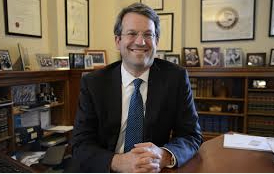A federal judge on Wednesday declined to sanction Michael Cohen and his lawyer for submitting fraudulent case citations generated by artificial intelligence (AI) — but chided them for the “embarrassing and certainly negligent” episode.
Cohen, former President Trump’s ex-fixer who pleaded guilty to evading income taxes and other crimes, had submitted the fake citations to his lawyer as he prepared a new effort to get Cohen out early from his supervised release.
U.S. District Judge Jesse Furman rejected the motion — Cohen’s fourth attempt — in a 13-page ruling issued on Wednesday, but the judge declined to go as far as imposing sanctions against Cohen or his lawyer, David Schwartz, for the fake citations.
“The Court has no basis to question Cohen’s representation that he believed the cases to be real,” Furman wrote. “Indeed, it would have been downright irrational for him to provide fake cases for Schwartz to include in the motion knowing they were fake — given the probability that Schwartz would discover the problem himself and not include the cases in the motion (as he should have) or, failing that, that the issue would be discovered by the Government or Court, with potentially serious adverse consequences for Cohen himself.”
Cohen’s use of AI marked a surprising twist in his criminal case, but it follows a string of lawyers getting caught providing fake case citations by using such software. Last June, a judge sanctioned two lawyers after one admitted to using AI-powered chatbot ChatGPT in formulating fake case citations. Cohen said he used Google’s Gemini, formerly known as Bard.
Two days after Cohen admitted to using AI, Chief Justice John Roberts made AI the focus of his most recent annual report, calling on the judiciary to determine its proper use in the legal system.
Cohen’s latest motion to cut his supervised release short was primarily spurred by his testimony in Trump’s Manhattan civil fraud trial, during which the former president’s ex-fixer testified that he and another Trump Organization executive would “reverse engineer” Trump’s assets to reach a number he liked.
But, in agreement with prosecutors, Furman said Cohen’s testimony in the trial actually provides “reason to deny his motion, not [to] grant it.”
During Cohen’s cross-examination in October, Trump attorney Alina Habba questioned the ex-fixer about the veracity of past and current testimony. She pointed to testimony he gave denying being guilty of crimes of which he was convicted and accused him of violating his oath to testify truthfully either when he took the plea or on the stand that day.
“You committed perjury in that proceeding, didn’t you?” Habba asked. “Did you lie to Judge [William] Pauley when you said that you’re guilty?”
“Yes,” Cohen replied.
Furman called it “perverse” to cite Cohen’s testimony in the fraud trial as evidence of the disbarred lawyer’s “commitment to upholding the law,” saying that Cohen’s conflicting accounts mean he must’ve perjured himself.
“At a minimum, Cohen’s ongoing and escalating efforts to walk away from his prior acceptance of responsibility for his crimes are manifest evidence of the ongoing need for specific deterrence,” Furman wrote.
In a statement, Habba said the judge “confirmed what we already know: that Michael Cohen committed perjury and should be prosecuted.”
“As the Manhattan DA says on their website ‘one standard of justice for all,’” she added.
Read more
Judge declines to sanction Michael Cohen, lawyer over AI-generated fake case citations




